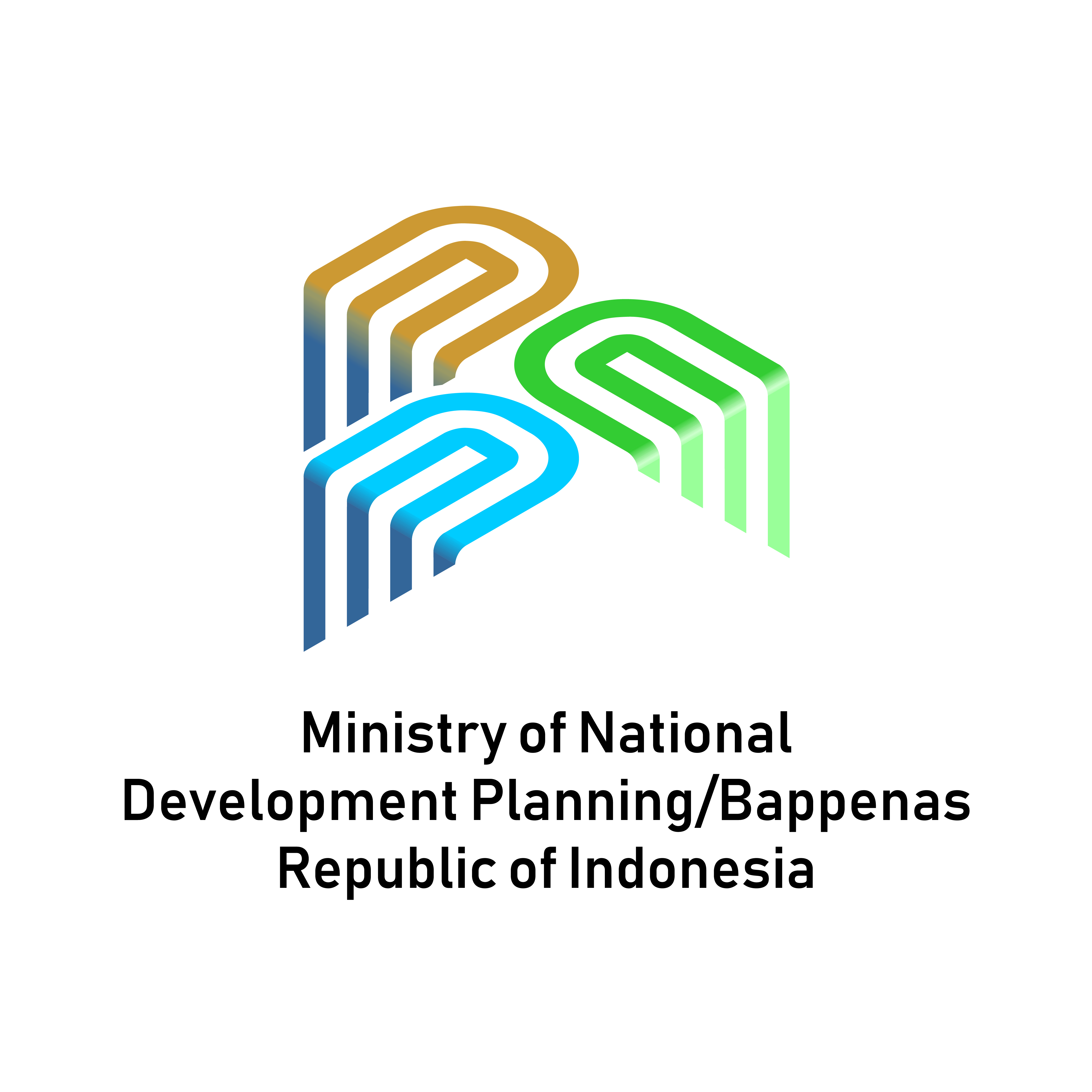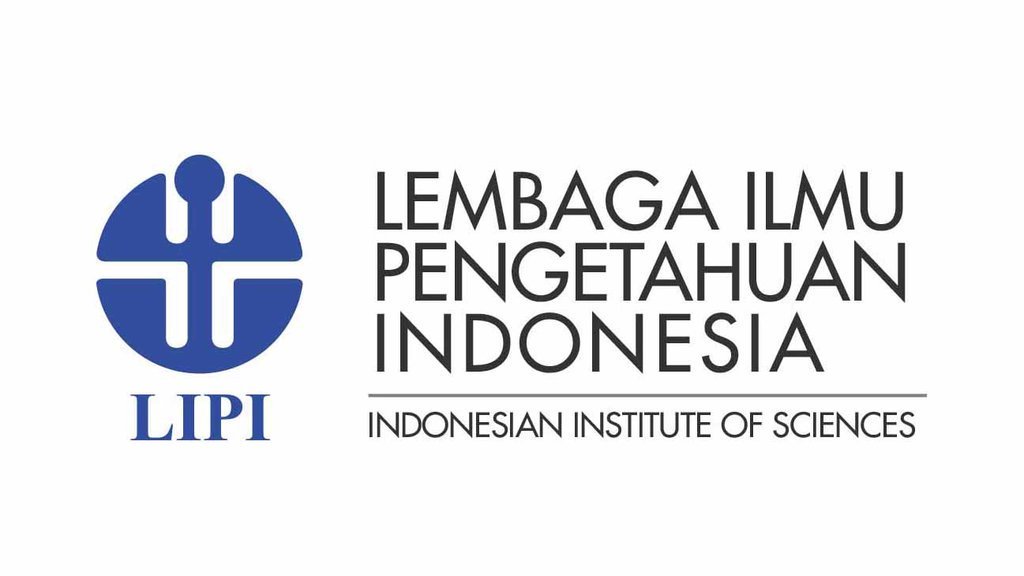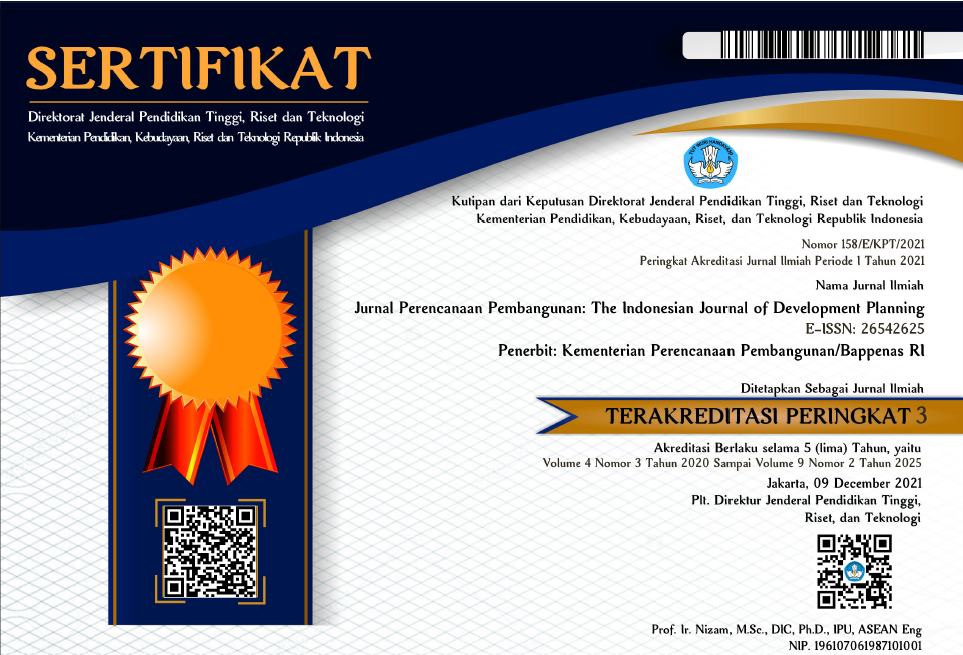Enabling Low-Carbon Tourism Through Technology Transfer in Indonesia: A PESTEL Analysis
DOI:
https://doi.org/10.36574/jpp.v7i1.362Keywords:
low-carbon tourism, technology transfer, PESTEL analysisAbstract
The tourism and travel sector has contributed significantly to Indonesia’s economic growth and robust development. Despite its positive impact, tourism and travel business activities also potentially impact environmental loss. In order to reduce these negative impacts, the new concept of tourism, namely low-carbon tourism, which focuses on environmental sustainability, can be implemented as the enabler. One of the factors that can support the implementation is the existence of environmentally friendly technology that requires a technology transfer process. This paper aims to overview the role and implication of technology transfer for enabling low-carbon tourism in Indonesia and outlining a conceptual framework for addressing the political (P), economic (E), social (S), technological (T), environmental (E), and legal (L) factors that constrain and support in enabling low-carbon tourism through technology transfer in Indonesia. A qualitative library research method and PESTEL analysis were employed to analyze and map the implications of external factors influencing the development of low-carbon tourism through technology transfer in Indonesia. The paper denotes that all the factors (political, economic, social, technological, environmental, and legal) were interrelated. Nevertheless, the economic factor was the only one with a moderate policy to encourage businesses to use green practices, particularly for the carbon tax policy. Consequently, there was still an opportunity for monetary policy to promote low-carbon tourism.
Downloads
References
Andrew, R., & Forgie, V. (2008). A three-perspective view of greenhouse gas emission responsibilities in New Zealand. Ecological Economics, 68(1), 194–204. https://doi.org/https://doi.org/10.1016/j.ecolecon.2008.02.016
Anton, C., Micu, A.-E., & Rusu, E. (2021). Multi-Criteria Analysis of the Mass Tourism Management Model Related to the Impact on the Local Community in Constanta City (Romania). Inventions, 6(3), 46. https://doi.org/10.3390/inventions6030046
Aygün O?ur, A., & Baycan, T. (2021). IMPACTS OF CLIMATE CHANGE ON TOURISM SECTOR IN TURKEY: CHALLENGES AND FUTURE PROSPECTS.
Badan Pusat Statistik. (2021). Indonesia Tourism Satellite Accounts (TSA), 2016-2019. Badan Pusat Statistik.
Barbier, E. B., & Markandya, A. (2013). A New Blueprint for a Green Economy.
Bhaktikul, K., Aroonsrimorakot, S., Laiphrakpam, M., & Paisantanakij, W. (2021). Toward a low-carbon tourism for sustainable development: a study based on a royal project for highland community development in Chiang Rai, Thailand. Environment, Development and Sustainability, 23(7), 10743–10762. https://doi.org/10.1007/s10668-020-01083-4
Blair, H. O. (2016). Overview of Licensing and Technology Transfer. N.C. J. Int’l L. & Com. Reg. 167, 8(2), 1–25.
Böhringer, C., & Rutherford, T. F. (2013). Transition towards a low carbon economy: A computable general equilibrium analysis for Poland. Energy Policy, 55, 16–26. https://doi.org/https://doi.org/10.1016/j.enpol.2012.11.056
Booking.com. (2022). Sustainable Travel Report 2022.
Can, H., & Hongbing, D. (2011). The model of developing low-carbon tourism in the context of leisure economy. Energy Procedia, 5, 1974–1978. https://doi.org/10.1016/j.egypro.2011.03.339
Chaabane, W., Nassour, A., Bartnik, S., Bünemann, A., & Nelles, M. (2019). Shifting Towards Sustainable Tourism: Organizational and Financial Scenarios for Solid Waste Management in Tourism Destinations in Tunisia. Sustainability, 11(13), 3591. https://doi.org/10.3390/su11133591
Chakrabarti, T. (2014). Emergence of Green Technologies Towards Sustainable Growth. In Environment and Sustainable Development (pp. 1–21). https://doi.org/10.1007/978-81-322-1166-2_1
Chakroun, N. (2017). Using technology transfer offices to foster technological development: A proposal based on a combination of articles 66.2 and 67 of the TRIPS agreement. The Journal of World Intellectual Property, 20(3–4), 103–118. https://doi.org/https://doi.org/10.1111/jwip.12077
Chen, Q., Tsai, S.-B., Zhai, Y., Zhou, J., Yu, J., Chang, L.-C., Li, G., Zheng, Y., & Wang, J. (2018). An Empirical Study on Low-Carbon: Human Resources Performance Evaluation. International Journal of Environmental Research and Public Health, 15(1). https://doi.org/10.3390/ijerph15010062
Creswell, J. W., & Creswell, J. D. (2018). Research design: qualitative, quantitative, and mixed methods approaches (Fifth edit). SAGE Publications Sage CA: Los Angeles, CA.
Green Journal. (2021). Why We Need Green Technology? Https://Www.Greenjournal.Co.Uk/2021/02/Why-We-Need-Green-Technology/.
Gregoric, M. (2014). PESTEL analysis of tourism destinations in the perspective of business tourism (MICE). Tourism and Hospitality 2014, Congress Proceedings Trends in Tourism and Hospitality Industry, 551–565.
GSTC. (2019). Global Report on Global Sustainable Tourism Council Assessed Destinations.
Hasan, M. S. M. S., & Zhang, R.-J. (2016). Critical Barriers and Challenges in Implementation of Green Construction in China. International Journal of Current Engineering and Technology, 6(2), 435–445.
He, J., & Wang, D. (2021). On Low-carbon and Its Realization in Tourism. IOP Conference Series: Earth and Environmental Science, 632(5), 052102. https://doi.org/10.1088/1755-1315/632/5/052102
Jiang, P., Chen, Y., Xu, B., Dong, W., & Kennedy, E. (2013). Building low carbon communities in China: The role of individual’s behaviour change and engagement. Energy Policy, 60, 611–620. https://doi.org/https://doi.org/10.1016/j.enpol.2013.05.017
Kireyeva, A., TURDALINA, S., Mussabalina, D., TURLYBEKOVA, N., & AKHMETOVA, Z. (2020). Analysis of the Efficiency Technology Transfer Offices in Management: The Case of Spain and Kazakhstan. The Journal of Asian Finance, Economics and Business, 7(8), 735–746. https://doi.org/10.13106/jafeb.2020.vol7.no8.735
Kumar, N., & Kumar, R. R. (2019). Relationship between ICT and international tourism demand: A study of major tourist destinations. Tourism Economics, 26(6), 908–925. https://doi.org/10.1177/1354816619858004
Layne, D. (2017). Impacts of Climate Change on Tourism in the Coastal and Marine Environments of Caribbean Small Island Developing States (SIDS). Science Review, January 2017, 174–184.
Loiseau, E., Saikku, L., Antikainen, R., Droste, N., Hansjürgens, B., Pitkänen, K., Leskinen, P., Kuikman, P., & Thomsen, M. (2016). Green economy and related concepts: An overview. Journal of Cleaner Production, 139, 361–371. https://doi.org/https://doi.org/10.1016/j.jclepro.2016.08.024
Lopes, J. M., Oliveira, M., Lopes, J., & Zaman, U. (2021). Networks, Innovation and Knowledge Transfer in Tourism Industry: An Empirical Study of SMEs in Portugal. Social Sciences, 10(159), 1–17. https://doi.org/10.3390/socsci10050159
Luo, Y., Wang, J., Dang, Q., & Chen, Y. (2016). Literature Review on Low Carbon Eco-tourism. 3rd International Conference on Management, Education Technology and Sports Science (METSS 2016), 204–213. https://doi.org/10.2991/metss-16.2016.44
Michailidou, A. V., Vlachokostas, C., & Moussiopoulos, ?. (2016). Interactions Between Climate Change and the Tourism Sector: Multiple-Criteria Decision Analysis to Assess Mitigation and Adaptation Options in Tourism Areas. Tourism Management, 55, 1–12.
Ministry of Environment and Forestry. (2021). Indonesia Long-Term Strategy for Low Carbon and Climate Resilience 2050.
Ministry of Environment and Forestry. (2022). The Operational Plan for Indonesia’s FOLU Net Sink 2030.
Nadal, J. R. (2014). How to Evaluate the Effects of Climate Change on Tourism. Tourism Management, 42, 334–340.
Nicula, V., & Spanu, S. (2019). PESTEL analysis applied in tourism evaluation in Braila County. Revista Economica, 71(3), 54–68.
Ollivaud, P., & Haxton, P. (2018). Making the most of tourism to promote sustainable regional development (ECONOMICS DEPARTMENT WORKING PAPERS No. 1535). https://doi.org/10.1787/eco_surveys-idn-2018-6-en
Pan, W., Gulzar, M. A., & Hassan, W. (2020). Synthetic evaluation of China’s regional low-carbon economy challenges by driver-pressure-state-impact-response model. International Journal of Environmental Research and Public Health, 17(15), 1–24. https://doi.org/10.3390/ijerph17155463
Pongthanaisawan, J., Wangjiraniran, W., Chuenwong, K., & Pimonsree, L. (2018). Scenario planning for low carbon tourism city: A case study of NAN. Energy Procedia, 152, 715–724. https://doi.org/10.1016/j.egypro.2018.09.235
Ramasamy, R., & Swamy, A. (2012). Global Warming, Climate Change and Tourism?: A Review of Literature. CULTUR: Revista de Cultura e Turismo, 6(3), 72–98.
Razzaq, A., Sharif, A., Ahmad, P., & Jermsittiparsert, K. (2020). Asymmetric Role of Tourism Development and Technology Innovation on Carbon Dioxide Emission Reduction in the Chinese Economy: Fresh Insights from QARDL Approach. Sustainable Development, 28(5), 1–27. https://doi.org/10.1002/sd.2139
Regulation of the Minister of Tourism and Creative Economy No. 9/2021 concerning guidelines for sustainable tourism destinations.
Scott, D. (2011). Why Sustainable Tourism Must Address Climate Change. Journal of Sustainable Tourism, 19(1), 17–34.
Semmler, W., Braga, J. P., Lichtenberger, A., Toure, M., & Hayde, E. (2021). Fiscal Policies for a Low-Carbon Economy. World Bank.
Shih, H.-Y., & Yao, Y.-S. (2020). Indicators of Low-Carbon Management in the Leisure Industry: Research Using Examples in Taiwan and China. Sustainability, 12(10), 4326. https://doi.org/10.3390/su12104326
Solomon, L., Uzor, C., & Alalibo, I. (2019). Harnessing Green Technology for Ecological Sustainability and Healthy Citizenry. Journal of American Science, 15, 81–89. https://doi.org/10.7537/marsjas150819.11
Solomon, S., Qin, D., Manning, M., Averyt, K., Marquis, M., & Tignor, M. M. (2007). Climate Change 2007-The Physical Science Basis: Working Group I Contribution To The Fourth Assessment Report Of The IPCC (Vol. 4).
Statista. (2021). Carbon dioxide emissions from tourism-related transport worldwide in 2005 and 2016, with a forecast for 2030.
Statista. (2022). Total contribution of travel and tourism to gross domestic product (GDP) worldwide from 2006 to 2021.
Tsai, F. M., Bui, T.-D., Tseng, M.-L., Lim, M. K., & Tan, R. R. (2021). Sustainable solid-waste management in coastal and marine tourism cities in Vietnam: A hierarchical-level approach. Resources, Conservation and Recycling, 168, 105266. https://doi.org/10.1016/j.resconrec.2020.105266
UNWTO. (2017). Tourism and the Sustainable Development Goals – Journey to 2030. In Tourism and the Sustainable Development Goals – Journey to 2030. https://doi.org/10.18111/9789284419401
UNWTO. (2021). Launch of the Glasgow Declaration: A commitment to a decade of climate action in tourism. Unwto.Org. https://www.unwto.org/event/cop-26-launch-of-the-glasgow-declaration-a-commitment-to-a-decade-of-climate-action-in-tourism
UNWTO. (2022). International Tourism Back To 60% Of Pre-Pandemic Levels in January-July 2022. Barometer.
Urban, F., Siciliano, G., Sour, K., Lonn, P. D., Tan?Mullins, M., & Mang, G. (2015). South–South Technology Transfer of Low?Carbon Innovation: Large Chinese Hydropower Dams in Cambodia. Sustainable Development, 23(4), 232–244. https://doi.org/10.1002/sd.1590
Utomo, E. T., Rahayu, G. G., Gembira, H., Puspita, H. I., Rahmadita, K., Putri, K. H., Mustikasari, N., Gardian, P. I., & Ahmed, Y. (2020). Indonesia Low Carbon Development Implementation Report 2018 - 2019.
Weko, S., & Goldthau, A. (2022). Bridging the low-carbon technology gap? Assessing energy initiatives for the Global South. Energy Policy, 169, 113192. https://doi.org/10.1016/j.enpol.2022.113192
World Intellectual Property Organization. (2022). Global Innovation Index 2022: What is the future of innovation-driven growth? https://doi.org/10.34667/tind.46596
World Tourism Organization. (2021). Recommendations for the Transition to a Green Travel and Tourism Economy. https://doi.org/https://doi.org/10.18111/9789284422814
Yu-ming, W. (2010). Low-carbon Tourism:A New Mode of Tourism Development. Tourism Tribune.
Yüksel, I. (2012). Developing a Multi-Criteria Decision Making Model for PESTEL Analysis. International Journal of Business and Management, 7(24), 52–66. https://doi.org/10.5539/ijbm.v7n24p52
Zachariadis, T., Milne, J., Andersen, M., & Ashiabor, H. (2020). Economic Instruments for a Low-carbon Future. https://doi.org/10.4337/9781839109911
Zhang, D., Zhen, Y., & Zhang, E. (2016). Research on the Models of Low- Carbon Tourism based on the Sustainable Development. Proceedings of the 3d International Conference on Applied Social Science Research. https://doi.org/10.2991/icassr-15.2016.28
Zhu, H., Zhang, J., Zhao, L., & Jin, S. (2017). Low carbon transition and sustainable development path of tourism industry. IOP Conference Series: Earth and Environmental Science, 64, 012053. https://doi.org/10.1088/1755-1315/64/1/012053
Downloads
Published
How to Cite
Issue
Section
License
This is an open-access article distributed under the terms of the Creative Commons Attribution-NonCommercial-ShareAlike 4.0 International License. Copyright © Kementerian PPN/Bappenas RI


















